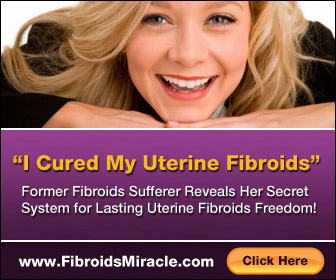Tummy Trouble with Uterine Fibroids
It is possible to experience a handful of stomach trouble when you have uterine fibroids. This, however, might not be too big of a concern for most women unless it hampers their daily activities. Small growths in the uterus usually do not present symptoms, but larger fibroids can cause you to have excessive gas, diarrhea, and bloating.
Size and Location Matter
The bigger the fibroids in the uterus, the more likely they are to cause symptoms in the abdominal area. The non-cancerous tumors may cause the uterus to grow larger and press on the bowels. When this happens, the patient could experience excessive gas and bloating.
The location of the non-cancerous tumors is also a factor in assessing a patient’s condition and ‘predicting’ what possible symptoms to expect. As the fibroids grow at the back of the uterus and press onto the rectum, for instance, they block the passage of stool and thus cause constipation. Hard stools are ‘trapped’ and loose stool goes beyond the point where the fibroids press against the rectum.
Not Your Ordinary Tummy Problems
Excessive gas, diarrhea, and bloating might sound to be ordinary occurrences that most people actually experience every once in a while. These can be relieved using simple solutions from herbal formulations to pharma tablets and capsules. But, when they occur to often or if you are experiencing other symptoms, you have to see your doctor to seek the right treatment.
In some cases, doctors might recommend surgical removal of the fibroids depending on the severity of the pain and other symptoms that the patient may feel. An ultrasound may be ordered to pinpoint the location of the fibroids and to determine how big and how many they are.
Going Under the Knife and Other Cures
There are two options commonly presented to patients who need surgical solutions: Myomectomy and hysterectomy. Myomectomy involves the removal of only the fibroids. While this option is presented as an option for women who would like to have children, the risk of damage to the uterus is high.
Hysterectomy, on the other hand, involves the removal of the uterus along with the fibroids that have grown in it. This means that the patient cannot have children anymore.
There are medicines and supplements that might be recommended to those who do not wish to undergo surgery to cure their uterine fibroids. The goal of these medications is to reduce the size of the fibroids, if not remove them entirely, to ease the pressure on the rectum and get rid of the excessive gas, diarrhea, and bloating. Hormonal medications and NSAIDs are usually prescribed to cure fibroids and to manage the symptoms.
Lifestyle changes like eating healthy and getting enough rest are also highly recommended for curing fibroids. A healthy diet that’s low in sugar, salt, and fat and high in fiber, vitamins, and minerals is good for balancing hormones and preventing the growth of fibroids.
Don’t Suffer in Silence
You do not have to endure your pain alone. Excessive gas, diarrhea, and bloating from uterine fibroids can be addressed better outside your bathroom. See your doctor and ask for advice now.


